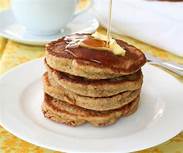Importance of well balance diet
All food contains all of the nutrients we need to be healthy, it is necessary to eat various foods in sufficient amounts. A good diet will include many different foods, and sufficient in quantity and quality to meet an individual’s need for food energy and other micro nutrients.
SAUCES AND SALAD DRESSINGS
Typical serving size:
Varies depending on typeHOW THEY HARM
Weight gain (high-fat, and high-sugar sauces Blood pressure (high-sodium sauces)WHAT THEY HEAL
Weight gain (low-fat sauces Blood sugar swings (low-sugar sauces) Sauces are the signature of different types of cuisineFor example, smoky, mesquite-flavored barbecue sauce is slathered over Southwest-style cooking
The buttery, creamy hollandaise sauce covers fine French entrées
Pasta sauces, such as marinara, are as Italian as spaghetti
Salsa is a must- have side to Mexican fare, and gravies are always found around the holidays
Salad dressings come in a colorfully wide variety
However, the creamier, heavier ones can turn an otherwise healthy salad into a diet-buster
For example, just 2 Tbsp (30 mL) of ranch dressing can add 148 calories and 15 g of fat
Vinaigrette dressings are a healthier option, with only about 60 calories in 2 Tbsp and 5 g of fat
For just about any sauce or salad dressing, homemade is often the better option
Store-bought versions contain high levels of sodium—often topping 30% of the RDA
Indeed, the word sauce comes from the root meaning “salty
” Early sauces were heavily salted and spiced to preserve food and mask the flavors of any tainted meats
Health Benefits
Helps maintain healthy weightSalsa, with its primarily tomato base, supplies fiber that can make you feel fuller longer
Preliminary studies indicate that vinegar can also help satiety so you eat less
Stabilizes blood sugar
Sauces based on fresh vegetables and olive oil are good sources of vitamins, fiber, complex carbohydrates, and unsaturated fat, which all help manage blood sugar
In addition, several studies have suggested that vinegar may reduce blood sugar levels, so vinegar- based salad dressings are a good choice
Health Risks
Weight gainSauces made from butter, flour, cream, and egg yolks (such as hollandaise and beurre blanc) and creamy salad dressings (such as ranch) are very high in fat, saturated fat, and cholesterol
Blood pressure
Asian-style sauces, such as peanut sauce and soy sauce, and some store-bought salsas are high in salt and can spike blood pressure
These should be avoided by people on low- sodium diets
High in sugar
Some sauces, like Worcestershire and barbecue sauce, are hidden sources of processed sugar
QUICK TIP:
Go beyond a chip dip Dollop freshly made tomato, fruit, or vegetable salsa on grilled seafood, poultry, or porkOr use as a dressing for a rice-and-vegetable salad
Allergies
Add a pinch of no-salt seasoning (try a Cajun, Italian, or Southwest blend)
Buying Tip
s
They should be used only sparingly, and people with high cholesterol levels should avoid them altogether
Storing Tip




